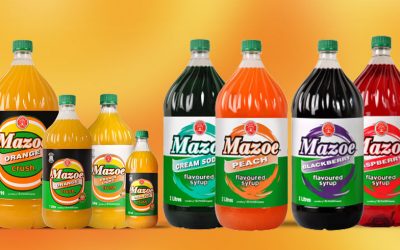Schweppes agitates for further sugar tax review
ONE of Zimbabwe’s largest beverage makers, Schweppes Zimbabwe, says the newly introduced tax on sugar content in drinks, will weigh heavily on demand, profitability and industry competitiveness even after the major climb down by authorities, which saw the tax twice reviewed since being first announced.
Schweppes Zimbabwe Limited is a manufacturer and distributor of non-carbonated still beverages under licence from The Coca-Cola Company. Its beverages portfolio includes Mazoe crushes and syrups, Minute Maid juices, Bonaqua Still Water and Schweppes Still Water.
Though not necessarily basic commodities, a good number of Schweppes Zimbabwe’s products have for generations been indispensable parts of many a shopper’s basket; indigenous brands that have carved permanent “places” in everyone’s bud.
It is expected the sugar tax will have industry-wide ramifications though. The tax is part of a coterie of revenue tax measures announced by Finance, Economic Development and Investment Promotion Minister Mthuli Ncube when he presented his $54 trillion 2024 national budget statement last November.
Initially, Mthuli had proposed a sugar tax of 2 cents per gramme, sparking an outcry and spirited lobbying from industry, which warned of the potential catastrophes the tax proposal would bring to industry viability and employment.
The other taxes proposed in the national budget, which also elicited significant whimpering from various sections of both business and wider Zimbabwean society included increases in tollgate fees, the wealth tax and passport fees.
They form part of the Treasury’s domestic resource mobilisation strategy at a time when Zimbabwe, ostracised by Western countries led by the US and Britain for grabbing back its farmland to resettle blacks, can not access external funding from global lenders controlled by the West.
Mthui is, however, on record, when defending the tax, saying it was necessary to the creation of a cancer fund given the rising cases of diseases like cancer and cardiovascular issues.
Given Zimbabwe’s beverage sector consumes about 7 000 tonnes of sugar per month, the proposed levy could run into a cumulative monthly tax payment of approximately US$140 million and annual industry tax bill of US$1,6 billion deposited into state coffers.
An associate of Zimbabwe’s largest beverage maker, Delta Corporation, Schweppes said the Government should further reduce the sugar tax, especially as it applies to cordials, dilutable and concentrated beverages.
Following the announcement of the sugar tax, Schweppes increased markedly the price of its products, including the popular Mazoe cordial, twice in a development that has shaken market players and left many wondering if the margins are justifiable.
The sugar tax review was introduced via statutory instrument 16 of 2024 gazetted last week and Schweppes says the tax has a significant impact on the company’s Mazoe cordial and concentrate products compared to the effect on the ready-to-drink carbonated beverages.
Cordials or dilutable beverages have higher sugar content, Schweppes said, adding because they are concentrated the tax on sugar in beverages should have been based on the amount of sugar per millilitre of diluted or finished product.
“Generally, and under normal circumstances, cordials or concentrated juice drinks would have lower tax rates than ready-to-drink beverages.
“That is the norm globally. In the published tax regulations, tax is on grammes of sugar in cordial products, hence higher tax and price increases on cordials/concentrate products compared to ready to drink beverages,” Schweppes said.
According to Schweppes, unlike value-added tax (VAT), the sugar tax is a cost to the business whose funding carries the cost of money, given the company supplies formal retailers who take long to pay for sold goods.
Notably, though, Schweppes supplies a significant portion of informal traders who buy large quantities every day in cash and exclusively in US dollars. The company also exports its range of products into the region.
Schweppes said the effect of delayed payments by formal retailers, part of its key customers, presented a strain on working capital.
“We envisage that this tax will have a negative impact on demand and business performance at a time when consumers are faced with affordability challenges. Industry competitiveness and viability are also at risk as regional tax levels are far much lower, therefore there is an inherent threat of cheap imports into the country,” Schweppes said.
The company said its plea was for the Government to further reduce the sugar tax on cordials, dilutable and concentrated juice drinks to be in line with regional and international levels. The beverage industry is also imploring authorities to clarify the effective date of the tax regulations.”
The initially proposed sugar levy, extensively reviewed by the Confederation of Zimbabwe Industries (CZI) in a December submission to the Government, was deemed excessively high before the latest review, and as being a potential obstacle to the affordability of beverages by consumers.-ebusinessweekly











